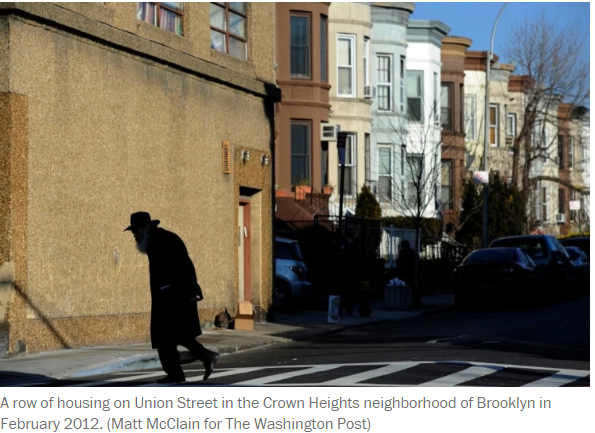The Washington Post
By Rabbi Marc Schneier and Russell Simmons
 Today marks the 25th anniversary of the Crown Heights riots, perhaps the worst day in the history of Jewish-black relations.
Today marks the 25th anniversary of the Crown Heights riots, perhaps the worst day in the history of Jewish-black relations.
On Aug. 19, 1991, a Jewish driver accidentally struck and killed a black child in Crown Heights, Brooklyn. The tragedy touched off three days of anti-Jewish rioting in the community, during which a Jewish student was fatally stabbed.
The riots, the nadir of black-Jewish relations in America, served as a wake-up call that led blacks and Jews to rebuild and renew their historic alliance, a partnership that took root in the civil rights movement of the 1960s. Today, that partnership calls on those of us in the black and Jewish communities to each stand up for the other — and to jointly stand up for all other marginalized communities, including American Muslims.
For the two of us, our commitment to taking a stand against bigotry comes right out of our gene pools. One of us is a Jew whose grandparents and many other family members were stripped of their livelihoods, homes and eventually their very humanity before being put to death in the gas chambers. The other is a descendant of African slaves who were brought to this country against their will and forced to work for their entire lives without receiving a cent in compensation, under the most horrific and degrading conditions imaginable.
In 1989, concerned about rising tensions between the black and Jewish communities, we founded the Foundation for Ethnic Understanding (FFEU). Our unusual tandem seemed to say: “If a rabbi and a hip-hop impresario can form a close friendship and work together, blacks and Jews anywhere can find a common language.”
Ever since the time of Crown Heights, FFEU has organized activities that improve black-Jewish relations. We promote Martin Luther King Jr. Day programs in Jewish schools and synagogues, and we fight anti-Semitism in the black community with campaigns like a video starring Jay-Z that powerfully made the point that “anti-Semitism isn’t cool.” We aim to give community leaders, some of whom have said problematic things in the past, the space to evolve in a positive direction so that we can fight all forms of bigotry together.
Today, fighting bigotry means fighting Islamophobia. Twenty-five years after Crown Heights erupted in violence, the most recent religiously tinged killings in New York City were outside a mosque in Ozone Park, Queens.
Imam Maulama Akonjee and his assistant Thara Uddin — by all accounts deeply devout men who humbly served their predominantly Bangladeshi Muslim community — were shot dead in broad daylight. A man has been arrested and charged with murder in the case. And while we do not yet know the motive for this horrific crime, we do know that there has been an alarming spike in anti-Muslim hate crimes across the country.
Georgetown University’s Center for Muslim-Christian Understanding cites 180 reported incidents of anti-Muslim violence between March 2015 and March 2016. Among these were 12 murders, 34 physical assaults, 56 acts of vandalism or destruction of property, nine arsons and eight shootings and bombings. Meanwhile anti-Muslim rhetoric has reached a feverish pitch in communities across America.
We can fight such hateful speech with words of truth and tolerance. Our organization started a campaign called Muslims Are Speaking Out to make it abundantly clear that the vast majority of American Muslims are strongly opposed to terrorism and violence. Bigotry is bigotry, whether it manifests in the form of anti-Semitism, racism or Islamophobia.
Neither of us is Muslim, but as members of two peoples who have suffered greatly from the consequences of hatred, we cannot be silent when American Muslims are unjustly demonized as dangerous and “un-American.” The common fate of Jews, African American and Muslims must strengthen our bonds of compassion, concern and caring for each other.
Rabbi Marc Schneier and Russell Simmons are president and chairman of the Foundation for Ethnic Understanding



